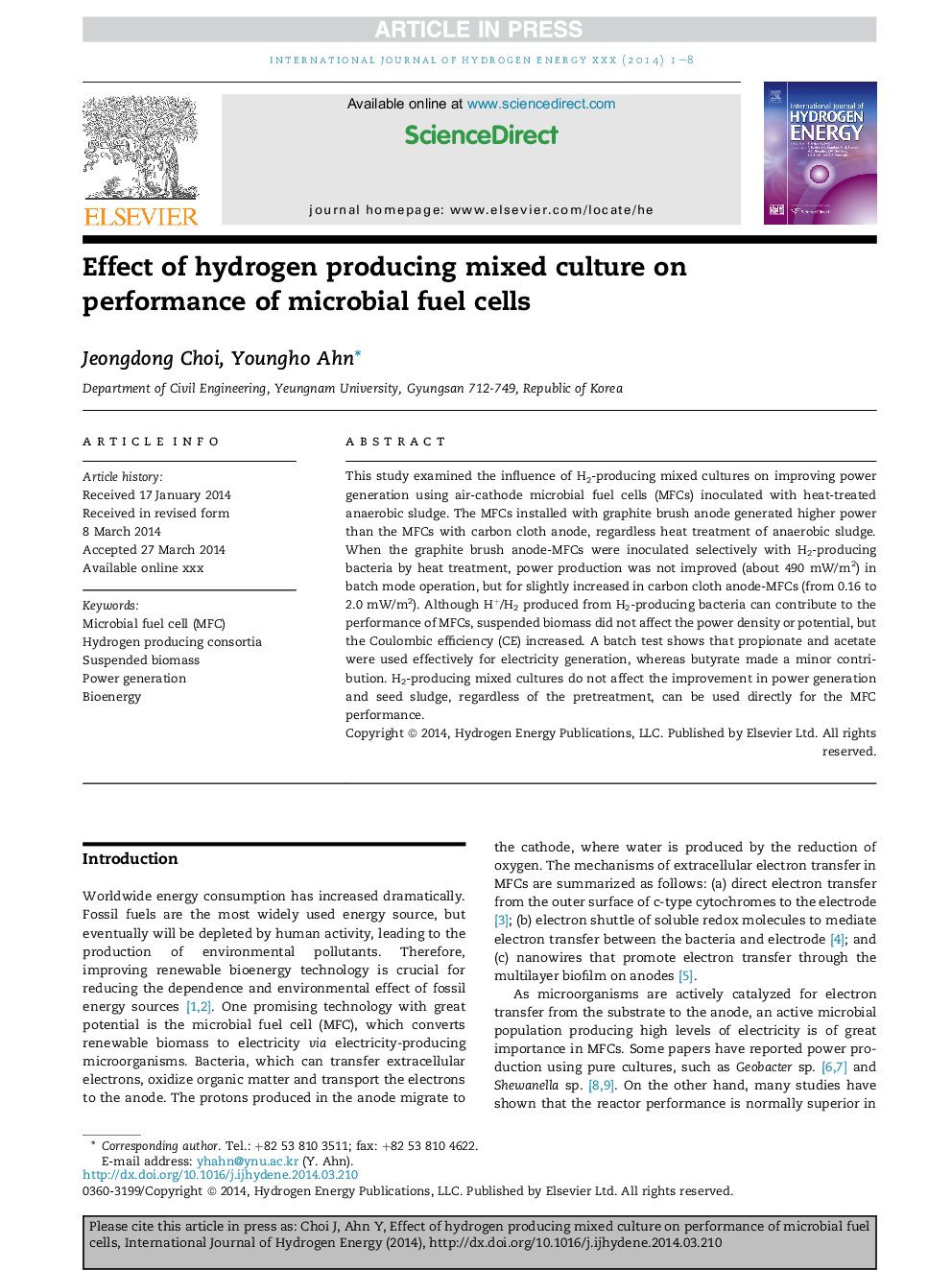| Article ID | Journal | Published Year | Pages | File Type |
|---|---|---|---|---|
| 7719174 | International Journal of Hydrogen Energy | 2014 | 8 Pages |
Abstract
This study examined the influence of H2-producing mixed cultures on improving power generation using air-cathode microbial fuel cells (MFCs) inoculated with heat-treated anaerobic sludge. The MFCs installed with graphite brush anode generated higher power than the MFCs with carbon cloth anode, regardless heat treatment of anaerobic sludge. When the graphite brush anode-MFCs were inoculated selectively with H2-producing bacteria by heat treatment, power production was not improved (about 490Â mW/m2) in batch mode operation, but for slightly increased in carbon cloth anode-MFCs (from 0.16 to 2.0Â mW/m2). Although H+/H2 produced from H2-producing bacteria can contribute to the performance of MFCs, suspended biomass did not affect the power density or potential, but the Coulombic efficiency (CE) increased. A batch test shows that propionate and acetate were used effectively for electricity generation, whereas butyrate made a minor contribution. H2-producing mixed cultures do not affect the improvement in power generation and seed sludge, regardless of the pretreatment, can be used directly for the MFC performance.
Related Topics
Physical Sciences and Engineering
Chemistry
Electrochemistry
Authors
Jeongdong Choi, Youngho Ahn,
